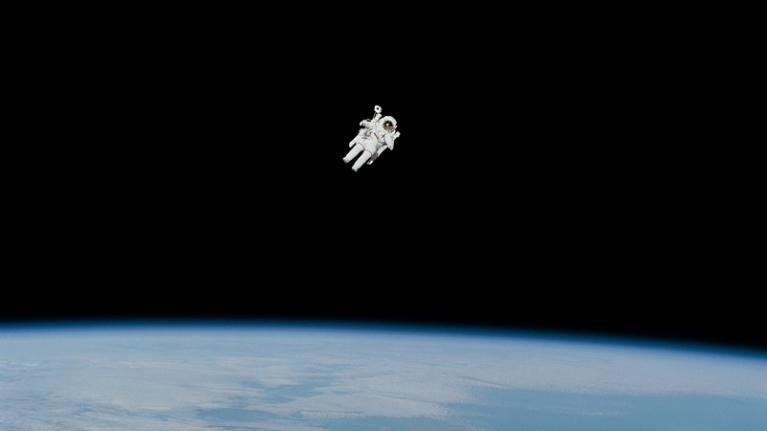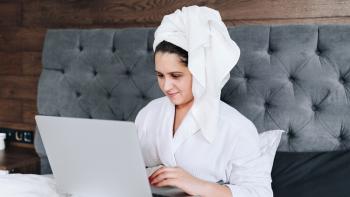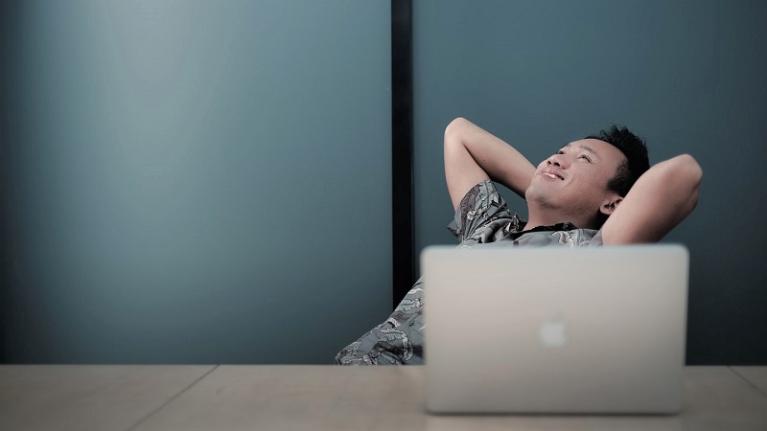An astronaut's tips for working or studying from home
Let’s face it, when COVID hit, suddenly having to restrict outings and work or study from home felt confining. For some of us, the moment we heard the news we instantly wanted to hit the nearest restaurant, beach or bar.
Now, some of us have the choice of whether to go back to face-to-face, continue working or studying from home, or mix up the two. If you are continuing to work or study from home it's still important to look after your wellbeing, stay social and step outside for some fresh air every now and again.
One man who lived in extreme isolation couldn’t do that so easily. Scott Kelly is a NASA astronaut who lived in space for almost a year and he has shared his solid strategies for staying mentally and physically well – based on his experience on the international space station far from Earth.

Related
1. Schedule like a spaceperson
In space, day and night is altered and astronauts live, work and sleep in a very confined environment, so maintaining a schedule is crucial.
If you work or study from home, you may feel like the space between work and life is blurring. You might also benefit from more structure. It can help create a sense of separation and order and help to create a calmer home life environment.
Map out time for work, time for play and, importantly, time for rest.
2. Make time for down time
Kelly warns, “When you are living and working in the same place for days on end, work can have a way of taking over everything if you let it.”
A crucial part of the schedule is honouring your commitment to relaxation time.
“I met up with crewmates for movie nights, complete with snacks, and binge-watched all of Game of Thrones – twice,” Kelly reveals.
One part of the schedule that’s as easy to ignore as it is crucial is managing your sleep through a consistent bed time.
"Quality of sleep relates to cognition, mood and interpersonal relations – all essential to getting through a mission in space or a quarantine at home.”
3. There's oxygen out there – go get some!
Working from home doesn’t mean you must stay inside your four walls. Research has shown that exercise and spending time in nature is beneficial for our mental and physical health.
Moving at least once a day should always be part of your schedule, and moving away from your computer at regular breaks is always good practice, whether at home or work.
4. Conserve some energy for the fun stuff
If you want to thrive, you need to make time for hobbies.
“When you are confined in a small space, you need an outlet that isn’t work or maintaining your environment.
“Some people are surprised to learn I brought books with me to space.
"The quiet and absorption you can find in a physical book – one that doesn’t ping you with notifications or tempt you to open a new tab – is priceless.
“You can practise an instrument, try a craft or make some art. Astronauts take time for all of these while in space (check out Canadian astronaut Chris Hadfield’s famous cover of David Bowie’s 'Space Oddity').”
5. Journal your journey
Keeping a journal of what’s happening and how you’re feeling is a great way to capture your experiences. You might even find it a good practice in mindfulness, and something you may treasure reading in the future.
Kelly says:
“NASA has been studying the effects of isolation on humans for decades, and one surprising finding they have made is the value of keeping a journal. Throughout my year-long mission, I took the time to write about my experiences almost every day.”
6. Reach out like a rocketeer
FaceTiming and having virtual drinks may have lost their novelty, but maintaining social contact is still important to your health. So if you don't want another Zoom call in your day, make sure you still pick up the phone to call a friend, and maintain your social bonds.
“Scientists have found that isolation is damaging not only to our mental health, but to our physical health, including our immune system,” Kelly says.
Make the time to connect with someone every day.
7. Listen to the experts
Whatever the topic, the simple rule is always to listen to the experts.
Kelly has a great space analogy for this:
“I’ve found that most problems aren’t rocket science, but when they are rocket science, you should ask a rocket scientist!
"Living in space taught me a lot about the importance of trusting the advice of people who knew more than I did about their subject, and that was keeping me alive.”
Small steps & giant leaps – together
This bonus wisdom from NASA’s Scott Kelly puts it all into perspective:
“I’ve seen humans work together to prevail over some of the toughest challenges imaginable, and I know we can prevail over this, if we all do our part and work together as a team.
"Oh, and wash your hands – often!”

Want to know more about remote learning?
Did you know that even our students who study 100% online have the benefit of focusing on one unit at a time and getting more time with their teachers, thanks to the Block Model?
VU's award-winning Block Model is designed for students of all backgrounds, ages and stages of life.
Delivering one unit at a time for four weeks (rather than the traditional four units at once over 12 weeks), the Block Model allows you to focus more and stress less.
Other benefits include smaller, workshop-style classes, and a more streamlined timetable so you can maintain a life outside of uni.
